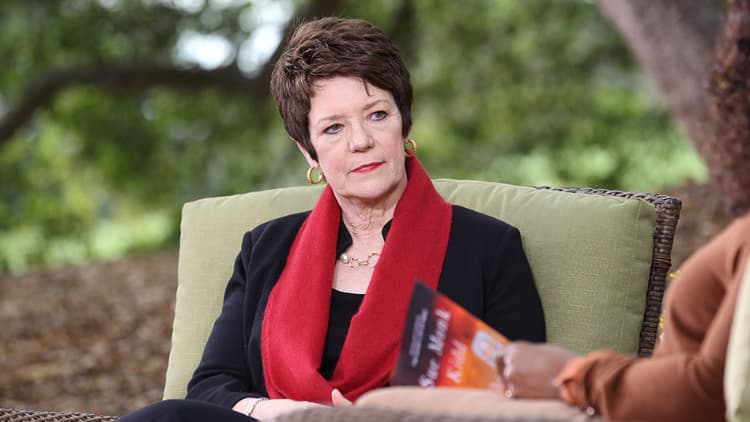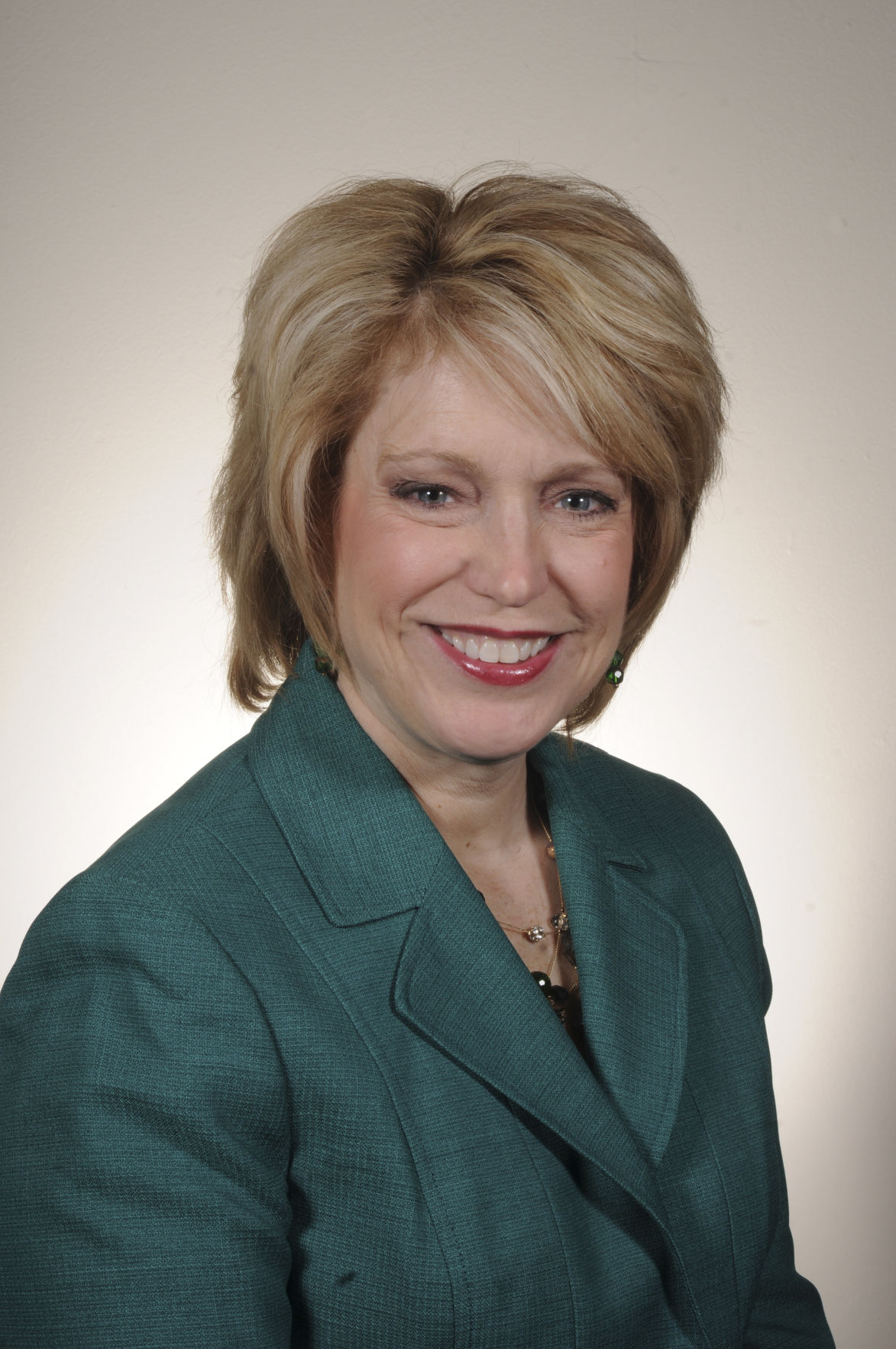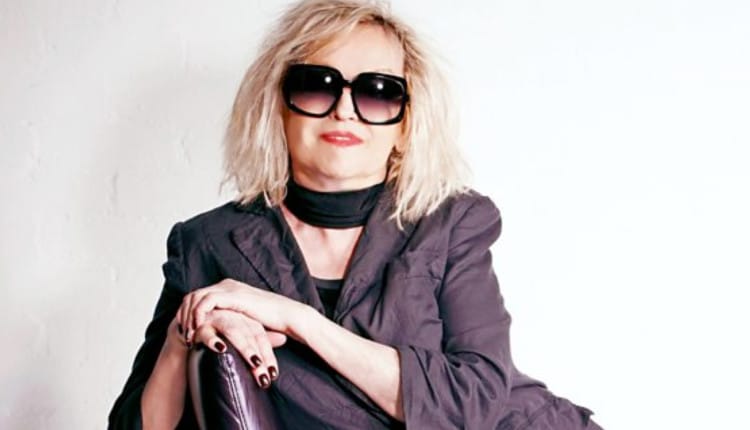Kristin Hannah Biography
Kristin Hannah is an American writer born in 1960 in United States. She has won numerous awards, including the Golden Heart, the Maggie, and the 1996 National Reader’s Choice award. She has sold more than twenty novels including the epic Firefly Lane, True Colors and Winter Garden.
Hannah graduated from law school in Washington and practiced law in Seattle before becoming a full-time writer.
Kristin Hannah Age
She was born on 25 September 1960 in Garden Grove, California, United States. She is 58 years old as of 2018.
Kristin Hannah Family
Kristin Hannah was born and grew up in Southern California. After turning eight, her father took the family to western Washington.
Kristin Hannah Husband
She is married and lives on Bainbridge Island, Washington, with her husband and their son.
Kristin Hannah Books | Kristin Hannah Books In Order | Kristin Hannah Kitapları
Kristin Hannah Firefly Lane Series
- Firefly Lane (2008)
- Fly Away (2013)
Single novels
- A Handful of Heaven (July 1991)
- The Enchantment (June 1992)
- Once in Every Life (December 1992)
- If You Believe (December 1993)
- When Lightnings Strikes (October 1994)
- Waiting for the Moon (September 1995)
- Home Again (October 1996)
- On Mystic Lake (February 1999)
- Angel Falls (April 2000)
- Summer Island (March 2001)
- Distant Shores (July 2002)
- Between Sisters (April 2003)
- The Things We Do for Love (June 2004)
- Comfort and Joy (October 2005)
- Magic Hour (February 2006)
- True Colors (2009)
- Winter Garden (2010)
- Night Road (March 2011)
- Home Front (2012)
- The Nightingale (2015)
- The Great Alone (2017)
The Nightingale Kristin Hannah
The Nightingale is a historical fiction novel, written by Hannah and published in 2015. The novel tells the story of two sisters in France during World War II, and their struggle to survive and resist the German occupation of France.
The book sold well, earning places on several bestseller lists, and in March 2015 it was optioned for a screen adaptation by TriStar Pictures.
Originally published: 3 February 2015
Author: Kristin Hannah
Page count: 440
Genre: Historical Fiction
Audio read by: Polly Stone
Awards: Audie Award for Fiction
Between Sisters Kristin Hannah
We all make mistakes, but for Meghann Dontess the terrible choice she made some years ago cost her everything, including the love of her sister, Claire. Meghann is now a highly successful attorney, and has put all thoughts of love completely behind her – until she meets the one man who believes he can change her mind. Claire has fallen in love for the first time in her life, and as her wedding day approaches she prepares to face her strong-willed older sister. Reunited after two decades, these two women who believe they have nothing in common will try to become what they never were: a family.Tender, funny, bittersweet and moving, Kristin Hannah’s Between Sisters skilfully explores the profound joys and sorrows shared in a close relationship, the mistakes made in the name of love, and the promise of redemption.
Originally published: April 2003
Author: Kristin Hannah
Genres: Romance novel, Domestic Fiction, Legal Story
Awards: RITA Award for Best Novel with Strong Romantic Elements
Magic Hour Kristin Hannah
Until recently, Dr. Julia Cates was one of the preeminent child psychiatrists in the country, but a scandal shattered her confidence, ruined her career, and made her a media target. When she gets a desperate call from her estranged sister, Ellie, a police chief in their small western Washington hometown, she jumps at the chance to escape. In Rain Valley, nothing much ever happens – until a girl emerges from the deep woods and walks into town. She is a victim unlike any Julia has ever seen: a child locked in a world of unimaginable fear and isolation.
Originally published: February 2006
Author: Kristin Hannah
Genre: Psychological Fiction
Night Road Kristin Hannah
Lexi and Mia are inseparable from the moment they start high school. Different in so many ways – Lexi is an orphan and lives with her aunt on a trailer park, while Mia is a golden girl blessed with a loving family and a beautiful home. Yet they recognise something in each other which sets them apart from the crowd. Mia’s beloved, and incredibly good-looking twin brother Zach, finds life much less complicated than his sister. The summer they graduated is a time they will always remember, and one they could never forget. A summer of love, shared confidences and promises. Then one moment, one night changes them all forever.
Originally published: 22 March 2011
Author: Kristin Hannah
Genres: Psychological Fiction, Domestic Fiction
Nominations: Goodreads Choice Awards Best Fiction
Fly Away Kristin Hannah
Firefly Lane became a touchstone novel in women’s lives. Across the world, women embraced the story of Tully and Kate’s enduring friendship. They laughed with Tully and cried with Kate and anguished over Tully’s fractured relationship with her mother. Now, in Fly Away – a story that both connects to Firefly Lane and stands alone – Kristin Hannah returns to the world of these unforgettable characters…
How do you hold yourself together when your world has fallen apart…
Fly Away is the story of three women who have lost their way and need each other – plus a miracle – to transform their lives.
An emotionally-complex, heartwrenching novel about love, family, motherhood, loss, and redemption, Fly Away reminds us that where there is life, there is hope and where there is love, there is forgiveness. Told with her trademark visceral storytelling and illuminating prose, Kristin Hannah reveals why she is one of the most beloved writers of our day.
Originally published: 23 April 2013
Author: Kristin Hannah
Genre: Domestic Fiction
Kristin Hannah Facebook
Kristin Hannah Interview
Interviewer: As your book points out, Alaskans are suspicious of outsiders and tourists. Were you at all nervous about portraying the Alaskan way of life, as someone who didn’t grow up there?
Kristin Hannah: I was, actually. I was nervous mostly because I just love the place so much, and I really wanted to show—at least—the Alaska that I felt I had seen, both physically and in the depiction of the people. I was nervous that it would be well received up there, and I had several Alaskan friends, who had come from homesteader families and had grown up in the area where the book is set, read it to see if I had made any mistakes or if I had depicted it accurately within the bounds of creative license. When they gave me the go-ahead, then I felt pretty good.
Interviewer: I’m a little surprised this is the first time you’ve set a book there.
Kristin Hannah: My very, very first book, A Handful of Heaven, was set up in the Yukon during the Klondike gold rush. It’s now out of print. So in a way it’s coming full circle. I started with my love of Alaska, and I’m back, but most people haven’t read that book.
Interviewer: How did you know this was an Alaska story? Did the story come first or did Alaska come first?
Kristin Hannah: Alaska definitely came first. It was the book that followed The Nightingale, and although I’ve been writing for two decades and I’ve had over 20 books out, The Nightingale reached a new level of success, and I have to admit that it was a little daunting to try to follow The Nightingale. So what I originally tried to do was to write a book that couldn’t compete or couldn’t be compared to The Nightingale.
I wanted to do something completely different. So I set out to write kind of a domestic thriller, and it was set in Alaska, and ultimately I worked on that book for 18 months and I realized that I just didn’t have a handle on it. I just wasn’t creating the book that I thought was good enough. When I looked at it really analytically, the only thing that was working was the setting of Alaska. You could tell I was really in love with this setting, and the setting was a character—it was then and it certainly is now. So I kept the setting and created an entirely new story, and that’s The Great Alone that you read. I don’t know exactly how it came about. I think it was at the time the political turbulence in America made me think about the ’70s and homesteading and people wanting to live off the grid and people wanting to get away from government and that sort of thing. It seemed sort of relevant and timely today, so I followed Alaska pioneers in the ’70s.
Interviewer: What was the research process like?
Kristin Hannah: It was sort of the opposite of The Nightingale. For The Nightingale there were literally thousands of books to read. In this one there weren’t as many sources, library books, and newspaper articles, so I did a lot more interviews, and it helped, of course, that I grew up in this era. I would be the same age as Leni. In 1974, I was 14 also, and so I remember that time very well and how unsettled it was. I lived in Seattle during the Ted Bundy years, and there were the gas shortages and it was really a time of unrest. I was able to bring a lot of my personal reminiscences to the table.
Interviewer: Is Kaneq, the town where the book takes place, based on a real place?
Kristin Hannah: It is a fictional town, obviously, because I have learned over time that that is jut a cleaner, simpler way to do it. I don’t get letters from people saying, “There are no trees on that corner,” you know. It’s loosely based on the town of Seldovia in Alaska. I used a fusion of Tutka Bay and Seldovia, that corner of the peninsula across from Homer. It’s beautiful and it looks close to everything, but you just can’t get there and there are no roads.
Interviewer: Still?
Kristin Hannah: Still. It’s interesting because I’ve been hearing that people love this quirky cast of Alaskan characters, and I just want to say that every single one of these people currently live in Alaska. You can still meet all of them.
Interviewer: What are some of your favorite books about Alaska, whether they were research for this book or not?
Kristin Hannah: I love Into the Wild. It’s iconic up there, frankly. Last I heard, you could still go visit the bus he lived in; it’s still up there in the same place and people make pilgrimages to it. And, of course, The Call of the Wild. There’s a lot of great landscape kind of memoirs about Alaska, people who are just so attached to the land itself because having to know the land and having to know the seasons and the animals and all that is so much more crucial for them up there, so they’re that much closer to the natural world.
Interviewer: This book portrays the cycle of abuse, which is by nature cyclical and repetitive. How do you write about something like that without becoming repetitive and cyclical yourself?
Kristin Hannah: This was a great challenge. I went through many, many versions of this book and many versions of trying to figure out how to do that, how to show this in a way that I thought was honest and was intense but wasn’t a relentless battering of the reader. The way I decided ultimately to do it was to essentially not reveal the actual abuse until well into the book. The book is Leni’s viewpoint, and Leni doesn’t know this is happening. The argument could be made that it had been happening all along, but we don’t know that for sure.
It’s important, too, because it feels like a big year for women’s issues and women standing up, and it’s important to talk about women who stay in these relationships and why they stay and how we as a society handle that and help them. It’s interesting to show that it was even more difficult in the ’70s and in an isolated place like Alaska.
Interviewer: Throughout the book, Cora talks about wishing that Leni knew Ernt before the war. Did you consider including flashbacks so we could see the younger Ernt?
Kristin Hannah: I did, and there are versions of that book out there in the ether. The bottom line was I liked the question better than the answer. Did PTSD cause this? Is this what he was like before? Is Cora a reliable assessor of his character? How much of this is true? I thought all of those questions were really interesting.
Interviewer: The Great Alone, The Nightingale, Home Front, and Winter Garden are all about war to varying degrees or the effects on people at the periphery of war. Why is this a subject that interests you?
Kristin Hannah: I wouldn’t even have said that it was an interest of mine, but I guess I find that in looking for what I want to write about, ordinary women in extraordinary circumstances just really appeal to me. I really like life-or-death stakes, and war obviously provides that. Like I said, I came of age during the Vietnam War, and I saw how our veterans were treated, and I wore one of those Prisoner of War bracelets for a captain who never came home, so I’ve long held on to a fascination of our Vietnam veterans.
Interviewer: Amanda asks: So many readers had strong reactions to The Nightingale. What is it like to internalize feedback that is so likely wrought with emotion?
Kristin Hannah: Humbling and terrifying. I can’t express the level of gratitude that I feel for how much they loved it. I think it’s because it’s a book about female heroism and female bravery, and it’s a book about WWII from an almost entirely female perspective, and I think it’s just really resonating with people, this reminder of how powerful women are and how powerful we can be when we come together and how resilient. I also think it’s because, once again, the world is so volatile right now that the messages of WWII seem relevant again.
Interviewer: Arielle asks: When you were researching The Nightingale, what was your most unexpected find?
Kristin Hannah: The genesis of The Nightingale was learning the story of a woman named Andree de Jongh, a 19-year-old Belgian woman who started one of the first escape routes out of Nazi-occupied France for downed airmen. She literally did walk over the Pyrenees without any training, in shoes that didn’t fit, in clothes that weren’t right, and she helped dozens and dozens of airmen get into Spain. To me there were a lot of remarkable things, but that was the beginning, and the fact that this story wasn’t more well known made me want to tell it, and it was that story that inspired the character of Isabelle and got me started on the road to this novel.
Interviewer: Diane asks: On your website you said that one thing you can’t live without is the perfect pen. I’m always looking for a perfect pen…which one do you use?
Kristin Hannah: I use a medium fine-point gel-tipped uni-ball. And you can get packs of, like, 16 from Costco.
Interviewer: What is your writing process?
Kristin Hannah: It’s an unwieldy thing. I come up with a question, something that interests me enough that I’m willing to put a year or two or three into answering it. In The Nightingaleit was: When would I risk my life to save a stranger? With The Great Alone it was: Could I survive in this environment? So I come up with the question, and then I do several months of research and come up with what I think is the story. And then I dive in and begin writing. I do have a detailed outline, but I tend not to refer to it, and it tends not to be very correct, except that when I begin, I know the beginning and I know the end. If I don’t know the end scene, then I don’t begin. So I just start writing, and about every 200 pages I throw out half of it, keep the half that’s working, and follow whatever that new story is, and I just keep doing that every 100 or 200 pages until I finally get to the end.
Interviewer: What was your favorite book growing up?
Kristin Hannah: The Lord of the Rings. It took me, like, eight times. I kept starting The Hobbit and going, I don’t think so, but then I got sick one weekend and read all four books in a weekend.
Interviewer: What was the last book you loved?
Kristin Hannah: A Gentleman in Moscow by Amor Towles.
Source: www.goodreads.com






